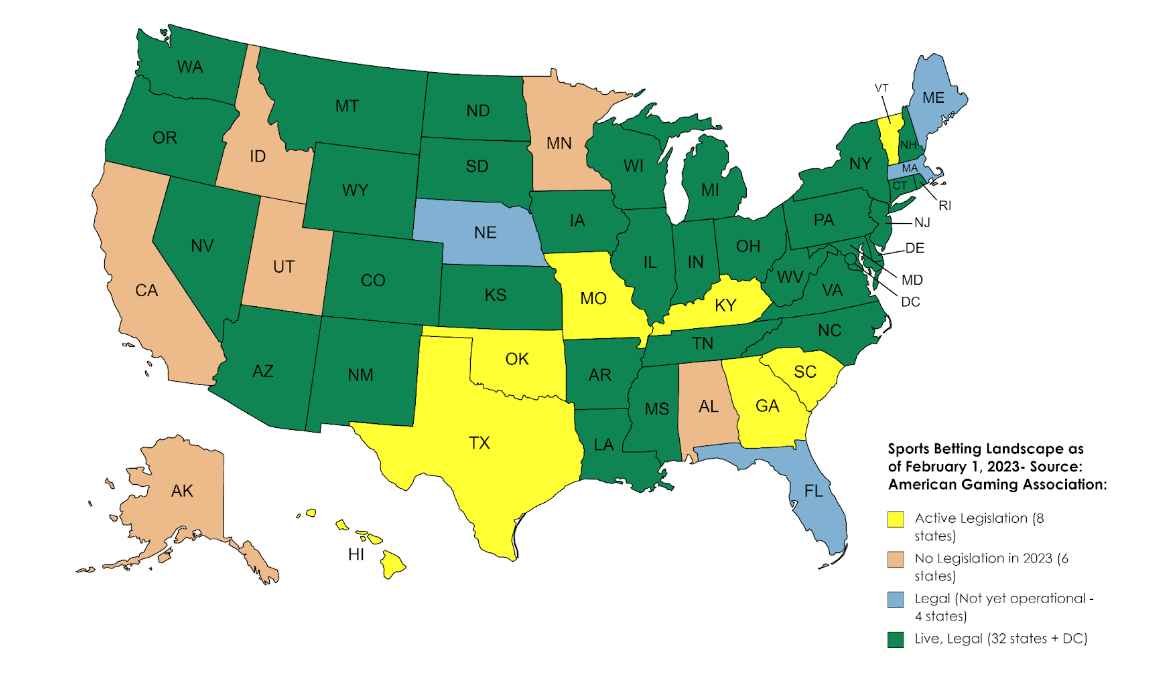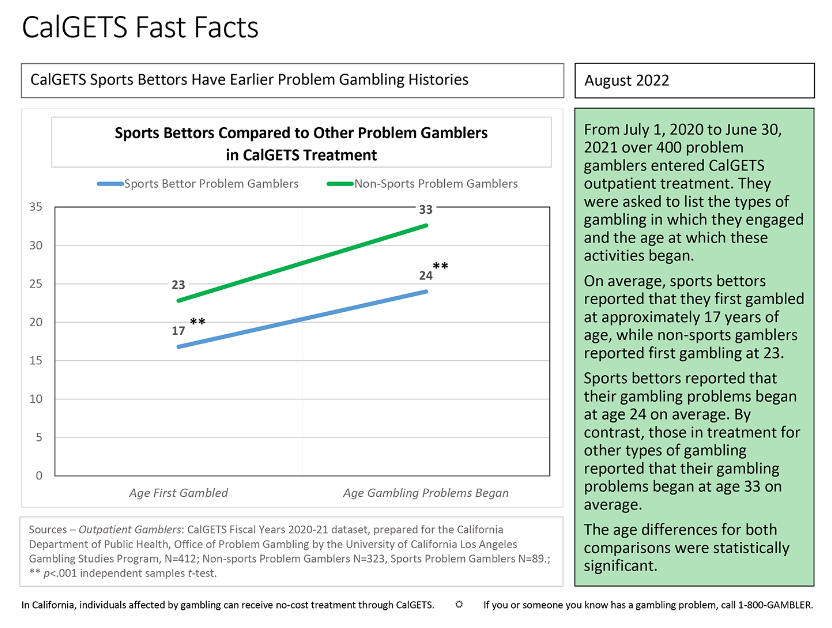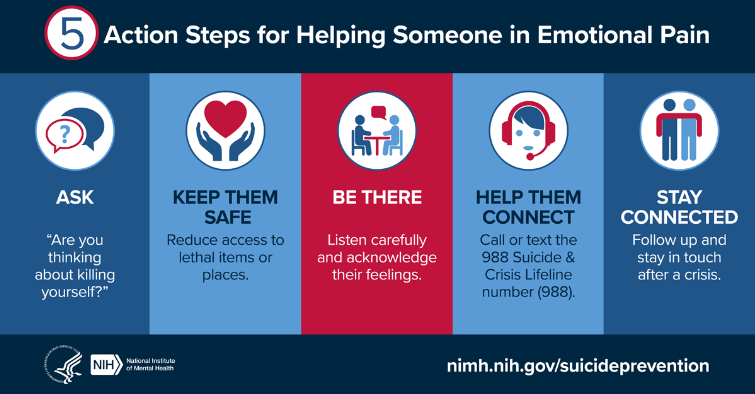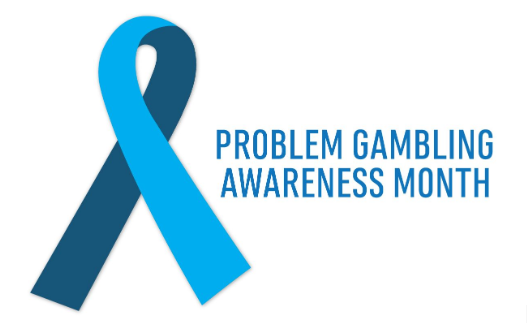Home > PTTC Post Article - March 2023
Author: Cele Fichter-DeSando, MPM
In 2018, the U.S. Supreme Court overturned the federal Professional and Amateur Sports Protection Act (PASPA) which limited sports betting to the state of Nevada. Once PASPA was struck down each state was able to make sports betting legal in their state. According to the American Gaming Association, as of February 2023, 36 states plus Washington D.C. have legalized sports betting. 32 states and D.C. have operationalized programs and 4 states have enacted legislation making sports betting legal but not yet operational. 8 states have pending legislation which could be voted on in 2023 (AGA, 2023).
The legalization of sports gambling and corresponding increases in advertising, the development of apps for mobile devices, and the capability of online betting and live betting opportunities have increased the availability, access, and awareness of gambling activities causing concerns about the potential for increases in gambling problems and disorders (McGee, 2020).

Problem Gambling and Sports Betting
Understanding problem gambling risk factors in general and the prevalence and characteristics associated with sports betting can provide a roadmap for developing focused prevention strategies. According to the American Psychiatry Association (APA), a gambling disorder involves repeated problematic gambling behavior that causes significant problems or distress. The fifth edition of the APA’s Diagnostic and Statistical Manual of Mental Disorders (DSM-5) classifies gambling disorder in the category of Substance-Related and Addictive Disorders, reflecting research findings that gambling disorder is similar to substance-related disorders in clinical expression, brain origin, comorbidity, physiology, and treatment (APA, 2021). While the majority of the adult population can engage in gambling activities without harm, the National Council on Problem Gambling (NCPG) defines problem gambling as all gambling behavior patterns that compromise, disrupt or damage personal, family, or vocational pursuits (NCPG, 2022). It is estimated that about 5% of all young people between 11 and 17 meet at least one of the criteria for a gambling problem. The increase in sports betting has caused, lawmakers in several states to look for ways to prevent youth gambling problems such as urging schools to provide a gambling addiction curriculum (Mercer, 2022).
Even prior to sports betting expansion in the U.S., sports betting was growing in popularity with an estimated 45% of the worldwide market share of online gambling in 2015 attributed to sports wagering (Winters and Derevensky,). A literature review of problem gambling studies identified several characteristics associated with problem gambling sports bettors including being young, male, single, socializing with others who engage in sports betting, perception of specialized knowledge and skill, along with an elevated likelihood of using alcohol or illicit substances while gambling (Winters and Derevensky, 2019). Another study found that positive attitudes toward gambling, distorted thinking in regard to perceived risk, skill, control, and ability, as well as differences in personality traits, motivation to gamble, and thinking styles, put sports bettors at a greater risk of developing problem gambling (Cooper et al. , 2022).
 The National Survey on Gambling Attitudes and Experiences (NGAGE) finds that sports betting appears to come with a higher risk of problematic gambling than most other forms of gambling. It is not known whether the problems with sports betting are connected to the availability of illegal and unregulated betting activities, the risk inherent in sports betting itself, and/or the risk of those who most often engage in sports betting, especially young males (NGAGE, 2021). The California Gambling Education and Treatment Services (CalGETS) conducted a study that showed that sports bettors in outpatient treatment reported that they started gambling at a younger age and developed gambling problems at a younger age than those in treatment for other gambling problems (CalGets, 2022).
The National Survey on Gambling Attitudes and Experiences (NGAGE) finds that sports betting appears to come with a higher risk of problematic gambling than most other forms of gambling. It is not known whether the problems with sports betting are connected to the availability of illegal and unregulated betting activities, the risk inherent in sports betting itself, and/or the risk of those who most often engage in sports betting, especially young males (NGAGE, 2021). The California Gambling Education and Treatment Services (CalGETS) conducted a study that showed that sports bettors in outpatient treatment reported that they started gambling at a younger age and developed gambling problems at a younger age than those in treatment for other gambling problems (CalGets, 2022).
Problem Gambling, Co-occurring Disorders, and Suicide Risk
 For many years research has shown that there is a connection between problem gambling, and mental health disorders such as anxiety and depression, and substance use disorders (SUDs). More research is being done as to the conditions, specific characteristics and timing of the occurrences of these related disorders (Sundqvist and Rosendahl, 2019). Understanding the connections and risk and protective factors between problem gambling and other behavioral health concerns can be of value in developing prevention and intervention programs. Research has also shown a connection for the risk of suicide with those who experience problems with gambling. Information and resources for suicide prevention should be included in gambling prevention programs and communication. A systematic review of quantitative evidence shows that ideation for suicide was present in 22-81 percent of individuals in clinical settings for problem gambling, while 40 percent of those seeking help have been identified as presenting a risk of suicide. Indebtedness and shame are two factors that appear to connect gambling and suicide risk. A public health approach is needed that recognizes the connection between death by suicide and gambling, reduces blame and stigma associated with gambling problems, and also addresses easy access to credit, cash advances, and programs that enable debt-driven gambling (Marionneau and Nikkinen, 2022).
For many years research has shown that there is a connection between problem gambling, and mental health disorders such as anxiety and depression, and substance use disorders (SUDs). More research is being done as to the conditions, specific characteristics and timing of the occurrences of these related disorders (Sundqvist and Rosendahl, 2019). Understanding the connections and risk and protective factors between problem gambling and other behavioral health concerns can be of value in developing prevention and intervention programs. Research has also shown a connection for the risk of suicide with those who experience problems with gambling. Information and resources for suicide prevention should be included in gambling prevention programs and communication. A systematic review of quantitative evidence shows that ideation for suicide was present in 22-81 percent of individuals in clinical settings for problem gambling, while 40 percent of those seeking help have been identified as presenting a risk of suicide. Indebtedness and shame are two factors that appear to connect gambling and suicide risk. A public health approach is needed that recognizes the connection between death by suicide and gambling, reduces blame and stigma associated with gambling problems, and also addresses easy access to credit, cash advances, and programs that enable debt-driven gambling (Marionneau and Nikkinen, 2022).
Problem Gambling Awareness Month
March is Problem Gambling Awareness Month (PGAM) and prevention and treatment programs can plan and become involved in community efforts to address problem gambling. The goals of PGAM are to increase public awareness of problem gambling and the availability of prevention, treatment & recovery services and to encourage healthcare providers to screen clients for problem gambling. NCPG has developed a PGAM toolkit to assist communities and organizations in providing awareness and screening for PGAM.
March Madness
For the past 20 years, PGAM occurs each March to coincide with the National College Athletic Association’s March Madness basketball tournament. In 2022, it was anticipated that 17% of Americans were expected to wager over $3 billion in legal sports betting for March Madness. In addition, another $7 billion was thought to be wagered illegally, with many individuals not knowing that they are placing illegal wagers (AGA, 2022). A recent U.S. News and World Report article highlighted a growing concern for college students due to at least eight universities forming partnerships or deals with sports gambling companies, and at least a dozen athletic departments and booster clubs having signed agreements with brick-and-mortar casinos. These partnerships allow sports betting companies to advertise on campus, in athletic venues, and directly in students' email inboxes, including students who are under 21 (Clayborn, 2023). In an attempt to prevent problems with sports betting, some states with legal sports betting have made it illegal to bet on games played by in-state colleges and a few universities have banned students, faculty, and staff from gambling on their schools’ teams (Smith, 2022).
New Strategies for Gambling Prevention
Raising awareness, providing education, curating resources, and delivering focused communication are strategies that prevention programs can employ to reduce the risks associated with sports betting and problem gambling. Much of sports betting is digital, online, and technology-driven. Prevention programs can increase and refine their digital presence to be visible and usable by tech-savvy groups such as high school and college students and provide information in multiple formats for teachers, parents, and coaches. Prevention professionals can share awareness of new tools that block gambling websites and apps such as Gamban and Bet Blocker, banks that allow individuals to block gambling transactions, and post information about online mutual aid support groups. Gamblers in Recovery is an international noticeboard developed in response to the COVID-19 pandemic, whose mission is to provide a resource for finding online gambling problem recovery meetings for individuals, friends, and family members. The Prevention Technology Transfer Network (PTTC) has several Gambling Prevention Products and Resources including factsheets, webinars, and toolkits to assist in developing gambling prevention programs. In addition to Problem Gambling Awareness Month, NCPG provides resources, training, certification and links to problem gambling information and Help By State.
Conclusion
Legalized sports betting has grown quickly in the past 5 years and is on track to continue to expand in the United States and worldwide. For many individuals, sports betting brings non-problematic enjoyment and excitement and an enticing influx of dollars to states, universities, and sports organizations. The rapidly growing industry does not come without risks, especially for young people. Prevention professionals have an important role to play in developing gambling prevention programs, providing population-level education, collaborating with community partners, and communicating with legislators, schools, and other key groups to increase protective factors and minimize risks associated with sports betting and other forms of gambling.
References:
American Gaming Association (AGA) 2022. March Madness 2022 Wagering Estimates
https://www.americangaming.org/resources/march-madness-2022/
American Gaming Association (AGA) 2023. U.S. Legal Sports Betting Maps
https://www.americangaming.org/wp-content/uploads/2020/08/AGA_New_LSBMap_020123.pdf
American Psychiatry Association (APA), 2022 What is Gambling Disorder.
https://www.psychiatry.org/patients-families/gambling-disorder/what-is-gambling-disorder
The California Gambling Education and Treatment Services (CalGETS) 2022. CalGets Sports Bettors Earlier PG History Fast Facts, August 2022.
http://www.uclagamblingprogram.org/fastfacts/
Clayborn, C. Jan 19, 2023. Sports Betting On Colleges What to Know. U.S. News and World Report.com (2023).
https://www.usnews.com/education/best-colleges/articles/sports-betting-on-college-campuses-what-to-know
Cooper, A., Olfert, K., & Marmurek, H. H. C. (2022). Predictors of Problem Gambling for Sports and Non-sports Gamblers: A Stochastic Search Variable Selection Analysis. Journal of gambling studies, 38(3), 767–783.
https://doi.org/10.1007/s10899-021-10025-2
Marionneau, V., & Nikkinen, J. (2022). Gambling-related suicides and suicidality: A systematic review of qualitative evidence. Frontiers in Psychiatry, 13.
https://doi.org/10.3389/fpsyt.2022.980303
McGee D. (2020). On the Normalisation of Online Sports Gambling Among Young Adult Men in the UK: A Public Health Perspective. Public health, 184, 89–94.
https://doi.org/10.1016/j.puhe.2020.04.018
Mercer, M., 2022. As Sports Betting Grows, States Tackle Teenage Problem Gambling Pew Trusts Stateline Article July 12, 2022.
https://www.pewtrusts.org/en/research-and-analysis/blogs/stateline/2022/07/12/as-sports-betting-grows-states-tackle-teenage-problem-gambling
National Council on Problem Gambling, (NCPG) 2023. What is Problem Gambling?
https://www.ncpgambling.org/help-treatment/faq/
National Survey on Gambling Experiences and Attitudes, 2021
https://www.ncpgsurvey.org/ngage-national-detailed-report/
Smith, G. March 15, 2022 Sports Betting Apps Flood College Campuses, Fuel Addiction Fears. Bloomberg.com (2023)
https://www.bloomberg.com/news/articles/2022-03-15/gambling-on-march-madness-concern-grows-as-apps-target-college-students
Sundqvist, K., Rosendahl, I. Problem Gambling and Psychiatric Comorbidity—Risk and Temporal Sequencing Among Women and Men: Results from the Swelogs Case–Control Study. J Gambl Stud 35, 757–771 (2019).
https://doi.org/10.1007/s10899-019-09851-2
Winters, K. C., & Derevensky, J. L. (2020). A review of sports wagering: Prevalence, characteristics of sports bettors, and association with problem gambling. Journal of Gambling Issues, 43, 102–127.